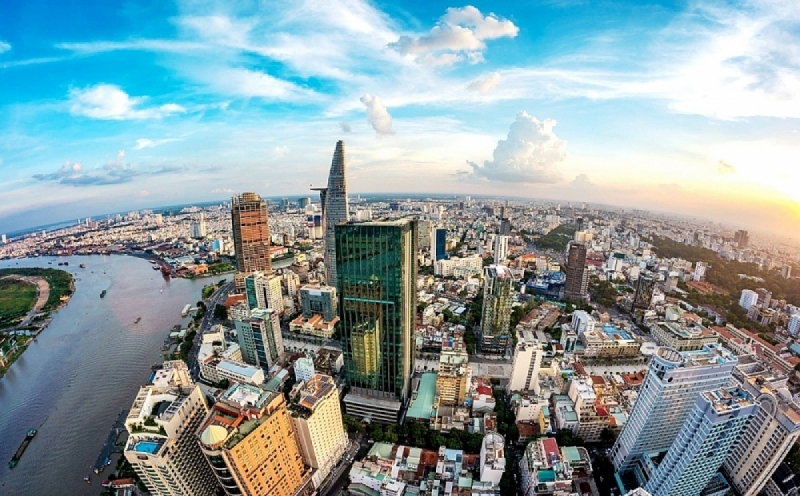Vietnam’s GDP to grow by 6.83% this year: CIEM
Vietnam’s Gross Domestic Product (GDP) is likely to reach 6.83% and inflation to be curbed at below 3.7% this year, according to projections by the Central Institute for Economic Management (CIEM).

Addressing a recent seminar, Nguyen Anh Duong, head of the CIEM’s Research Division, emphasised that the Vietnamese economy recorded impressive results last year with GDP accelerating 8.02%, plus positive signs in import-export activities.
However, Duong pointed out that with a shortage of export orders, the country’s economic growth rate has been slowing down since the fourth quarter of last year, which is projected to continue lingering until the opening months of this year.
In its latest report, CIEM has put forward two scenarios for the Vietnamese economy in 2023 based on the current global and domestic economic situation.
In the first scenario, Vietnamese GDP growth is anticipated to rise by 6.47%, inflation to be kept at 4.08%, exports to expand by 7.21%, and trade surplus to bring back US$5.64 billion.
In the event of the positive scenario, labour productivity is forecast to increase while GDP growth, inflation rate, and export growth will reach 6.83%, 3.69%, and 8.43%, respectively, while trade surplus will rise to US$8.15 billion.
This year the Vietnamese economy is anticipated to face numerous challenges, said CIEM experts, noting that the country needs to fully evaluate its achievements and the overall quality of growth in a bid to devise proper adjustments and fulfil the set goals.
The national economy is likely to endure other external factors, including the containment efforts for emerging SARS-CoV-2 variants, the prolonged impact of the Russia – Ukraine conflict, and tightened monetary policies in key economies to deal with inflationary pressures.
Think tanks also underscored the importance of the implementation of the country’s Socio-Economic Development and Recovery Programme, saying in the event that macroeconomic stability is maintained, Vietnam will be able to continue to reform and promote fiscal and monetary measures in order to restore economic growth.
Most notably, the country’s economic growth will largely depend on its ability to diversify export markets, take full advantage of opportunities from free trade agreements (FTAs), and handle risks related to trade conflict among major powers and the depreciation of regional currencies against the US$.
Economists also emphasised the necessity of improving the micro-economic foundation and renovating the economic institutional system in order to effectively handle risks amid global economic fluctuations.

